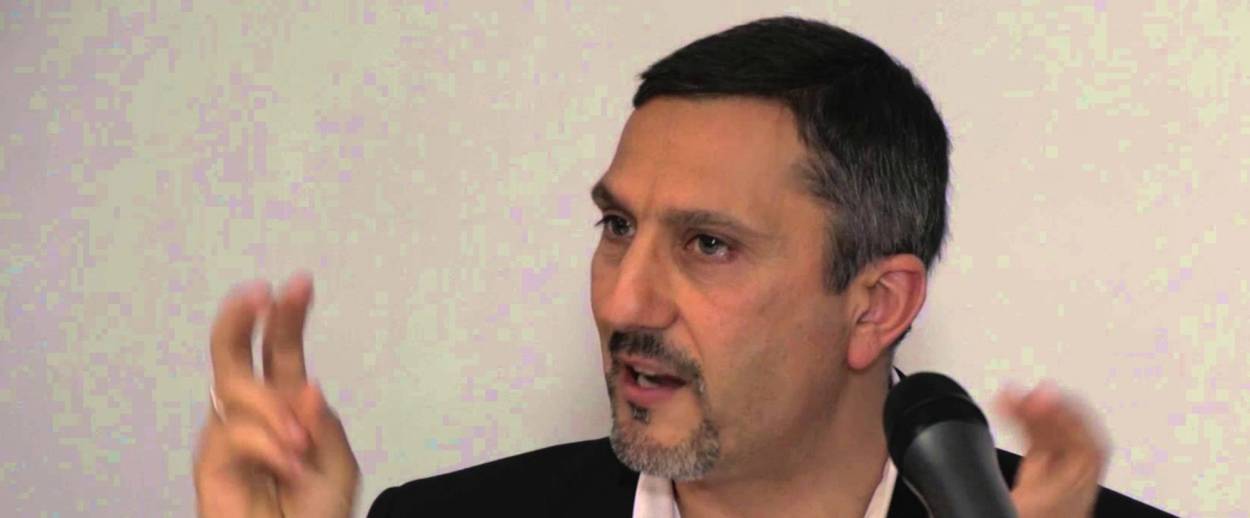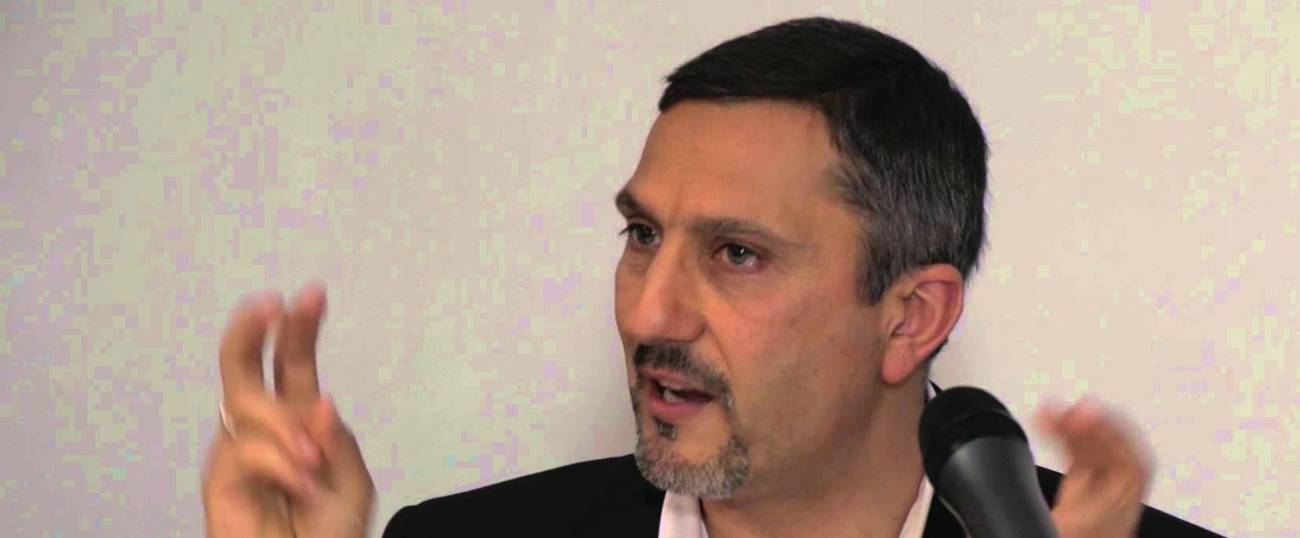Co-Founder of Students for Justice in Palestine Shares Insanely Anti-Semitic Memes, Offers World’s Least Convincing Apology
Berkeley lecturer Hatem Bazian has a history of presenting anti-Semitism under the guise of anti-Zionism




As anyone who has ever discussed the Israeli-Palestinian conflict knows, it is sometimes difficult to determine whether criticism of the Jewish state has crossed over into animus towards Jews. In such cases, reasonable minds may differ. Then there is the case of Hatem Bazian, a longtime lecturer at Berkeley and co-founder of Students for Justice in Palestine, who retweeted these images on Twitter this past Tuesday:


Needless to say, these are not anti-Israel images, they are anti-Semitic images—from the caricatures of religious Jews, to the comparison of Ashkenazi Jews to Nazis, to the use of symbols like yarmulkes and repeated invocations of the Jewish religion. Moreover, as The Atlantic’s Graeme Wood observed, one of the memes is also clearly racist in its “ridicul[ing] a Korean for saying ‘Donald Tlump.’” The account that shared these images, and that Bazian retweeted to his 16,000 followers, regularly refers to “ZioNazi Jews,” questions the Holocaust, and denies that Jews even existed in the biblical period, among other classical anti-Semitic tropes.
When Bazian’s retweet was brought to his university’s attention, Berkeley quickly condemned his anti-Semitic internet effusion. “While we do not believe that all criticism of Israel’s governmental policies is inherently anti-Semitic, the social media posts in question clearly crossed the line, and we are pleased they have been deleted,” said spokesman Dan Mogulof. (In fact, as The Forward noted, they had not been removed.)
Bazian then offered one of the least convincing apologies in a season that has been full of them. “I did not realize or read the full text in detail,” he claimed, as though the material he shared was subtle and required careful analysis to determine that it was insanely bigoted. He then proceeded to insist that he has Jewish friends (citing “the anti-racist work that I do fighting anti-Semitism with progressive Jewish groups”) and that he is only anti-Israel, not anti-Semitic, despite obvious evidence to the contrary (”my issue is with Zionism … not with Judaism or Jews”).
It is relatively easy to ascertain that Bazian’s apology, laughable as it is, was not on the level. That’s because he has a track record of anti-Semitism that far predates this particular tweet. Back in 2002, when Bazian was a graduate student at Berkeley, he told an anti-Israel rally to “take a look at the type of names on the building around campus—Haas, Zellerbach—and decide who controls this university,” thus conflating American-Jewish donors to California higher education with some sort of nefarious Israeli agenda.
On Twitter, Jeremy Burton, the director of the Boston Jewish Community Relations Council and an LGBT Latino, recounted how Bazian had worked to expel him from a Latino group in 1991:
Also, I still remember vividly the 1991 USSA convention where Bazian actively worked to expel a Zionist Jew (me) from the Latino caucus because Zionism & identifying as Latino needed to be exclusive of each other.
— Jeremy Burton (@BurtonJM) November 27, 2017
To last, my mother is Mexican & Native-American, I was raised with that identity my entire life. But thanks to Bazian, in 1991 USSA delegates threw me out of one of the “people of color caucuses” because I was also committed to my Jewish identity.
— Jeremy Burton (@BurtonJM) November 27, 2017
Hatem Bazian, a founder of Students for Justice in Palestine, has always been and continues to be a promoter of antisemitism on the US campus left.
— Jeremy Burton (@BurtonJM) November 27, 2017
Bazian’s checkered history should come as no surprise. As in the case of many abusive individuals in positions of authority, from serial sexual harassers to racists, the offense rarely occurs just once. Rather, it is usually part of an escalating pattern of bad behavior that either goes unnoticed or is deliberately ignored.
To its credit, Berkeley promptly condemned Bazian’s anti-Semitic outburst in clear, explicit terms. But it shouldn’t take such a bizarre and blatant incident like this for an institution to finally wise up to someone with Bazian’s history.
Yair Rosenberg is a senior writer at Tablet. Subscribe to his newsletter, listen to his music, and follow him on Twitter and Facebook.